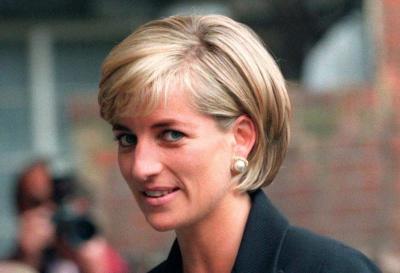'The Crown' and modern marriage

Season five of Netflix’s "The Crown" brings to the forefront a source of contention that has run throughout the show, what is the role of the monarchy in modern Britain. It does this by highlighting the imploding marriages of Queen Elizabeth’s children. By doing this, it also forces the viewer to grapple with the question, what is the role of marriage in the modern world.
In the view of the Queen’s children, both are outdated, in as much need of modernization as the cable service at Buckingham Palace. Yet, there is a sad trade-off that will inevitably come when the monarchy and marriage modernize; the younger royals no longer call the public to something higher. By coming to reflect the modern views of the public, they fail to point toward the ideals they were meant to reflect.
Throughout the season, "The Crown" shows three competing views of marriage. The first is presented by the younger royals, principally Charles and Diana, but it is also displayed by Prince Andrew and Sarah Ferguson, as well as Princess Anne. Marriage, in this view, is principally for the immediate happiness of the couple, and when they are no longer happy, or when they begin to drift apart, the marriage can be ended. Consequently, the ending of the marriage is not the concern of the rest of society, the family, or God because marriage, in this view, is oriented towards the self.
Prince Philip seems to demonstrate a more tempered version of this view. He is not accepting of divorce but, instead, feels that it is necessary to make “arrangements” in marriage. He openly acknowledges how easy it is for couples to drift apart but, rather than taking initiative to rectify this, devotes himself to hobbies and royal service. It is then up to one’s spouse to change in order for the gap to be remedied.
While this may not end in divorce, it hollows out the marriage. There is a sense of duty attached to Philip’s view: divorce would harm the crown and, as a result, the country, but this doesn’t go far enough. It fails to recognize that marriage requires sacrifice and intentional effort from both persons.
Finally, there is the view presented by Queen Elizabeth, the only person throughout the series to acknowledge that, no matter how secret the “arrangements” might be from the public, they are always visible to God. Even when they don’t rise to sexual infidelity, they represent a choice to love oneself and one’s comforts and pleasures over devotion to one’s spouse.
Marriage, just like the monarchy, is meant to point the people to something higher. Marriage is to represent the relationship of Christ to His church. It is sacrificial, always seeking the good of the other. Divorce is not something trivial. If marriage represents the relationship of Christ to His bride, then divorce misrepresents it to the world.
In the first season, when Queen Elizabeth prepares to take the throne, her grandmother Queen Mary tells her, “I have seen three great monarchies brought down through their failure to separate personal indulgences from duty. You must not allow yourself to make similar mistakes. And while you mourn your father, you must also mourn someone else, Elizabeth Mountbatten. For she has now been replaced by another person, Elizabeth Regina. The two Elizabeths will frequently be in conflict with one another. The fact is, the crown must win. Must always win.”
This quote models the Christian life as well: death to self, giving way to the new person in Christ. Queen Elizabeth took this call seriously throughout her life both as a Christian and Monarch. This included upholding the institution of marriage when it led to strife between her and her sister, and it also included forgiving her husband his infidelities and seeking to find ways to restore their marriage.
The second to last episode of "The Crown" shows the finalization of Charles’ and Diana’s divorce. The episode follows a motif that parallels "When Harry Met Sally," but, instead of showing interviews of happy couples sharing the story of how they met, the episode is punctuated by scenes of couples at divorce hearings. It concludes with the finalization of Charles’ and Diana’s divorce, just one more in a series of many cases heard that day. In this way, the new royals have modernized, indistinguishable from the general public. The marriage that was supposed to reinvigorate the monarchy ended.
While modern marriage, to many, sounds convenient, it is a profound loss both for the families that go through it and society as a whole. Christians should resist the temptation to adopt these more convenient views of marriage and instead live out their marital union as a witness to a society that desperately needs to be pointed to something higher than itself.
Originally published at Juicy Ecumenism.
Sarah Diane Stewart is a Methodist laywoman from Parkersburg, WV who now resides in the Washington, D.C. region.




























